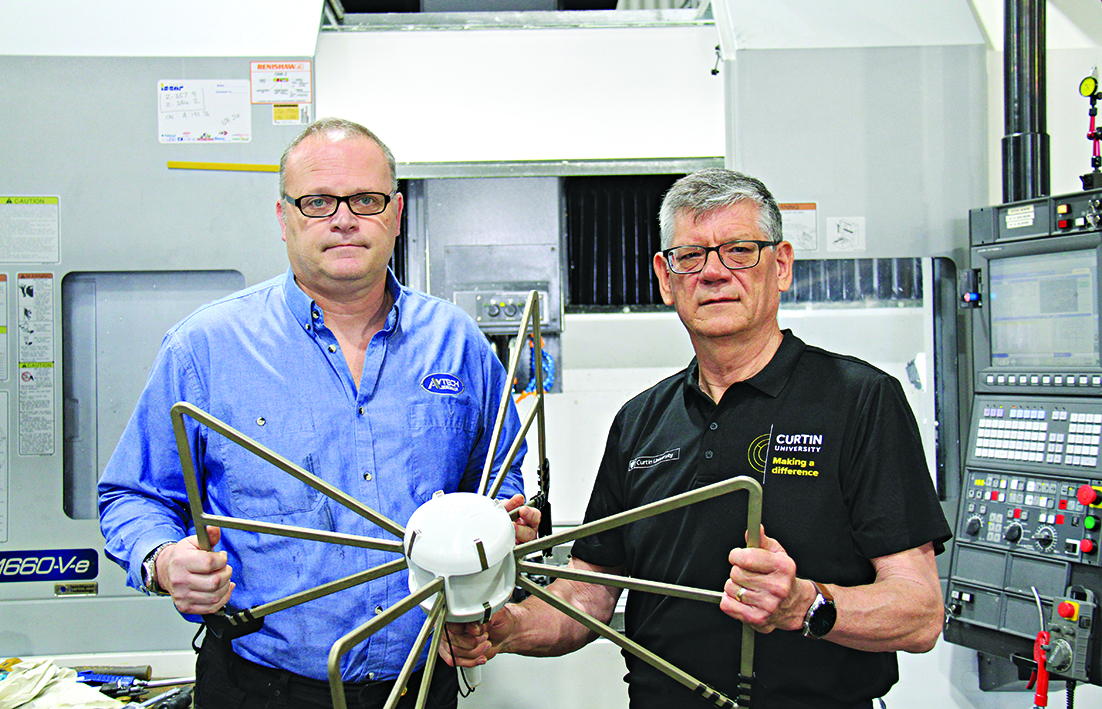
BELLEVUE business Avtech Engineering has collaborated with the Curtin Institute of Radio Astronomy to tackle the growing issue of space junk in Earth’s lower orbit (LEO).
Avtech have been machining the legs on the antennas on CIRA’s new passive radar space-junk tracking project, which will allow researchers to pin-point and catalogue space debris throughout the LEO.
The project consists of 512 antennas which will be sent to Peterborough in South Australia, where they will be fixed to the ground and passively track space junk, utilising radar signals to determine location, size and speed in Earth’s LEO.
CIRA engineering project manager Rob Howes said that due to space exploration the LEO orbit is crowded with millions of pieces of space debris from old satellites and rocket bodies.
“The low Earth orbit is the first 2000km of space from Earth and is where many of our communications and weather satellites reside – as well as the space station, Hubble and James Webb telescope, GPS satellites and SpaceX Starlink constellations,” he said.
Mr Howe said that cataloguing current space junk will help prevent damage to existing LEO space infrastructure.
“There’s been a number of instances where satellites have collided, and that results in additional space junk.
“If we don’t start looking after space, we won’t be able to launch through (the junk), and we’ll end up being landlocked,” he said.
Avtech Engineering general manager Martin Clifford said it was an interesting project to be a part of.
“We get a lot of general mining stuff and this a lot different from that,” he said.
When asked if Avtech would move onto making spaceships after this project, Mr Clifford laughed, and said that Avtech has no plans for that kind of expansion.